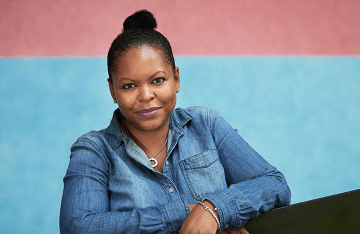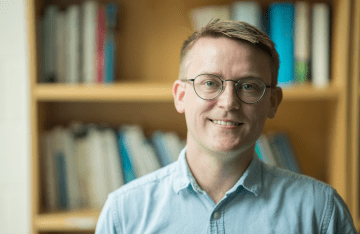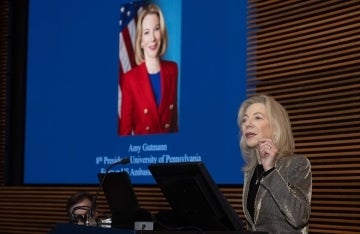The Center for Advanced Research in Global Communication Welcomes Three Visiting Scholars for Spring 2025
Gholam Khiabany, Anis Rahman, and Anastasia Kavada will join the center this spring.
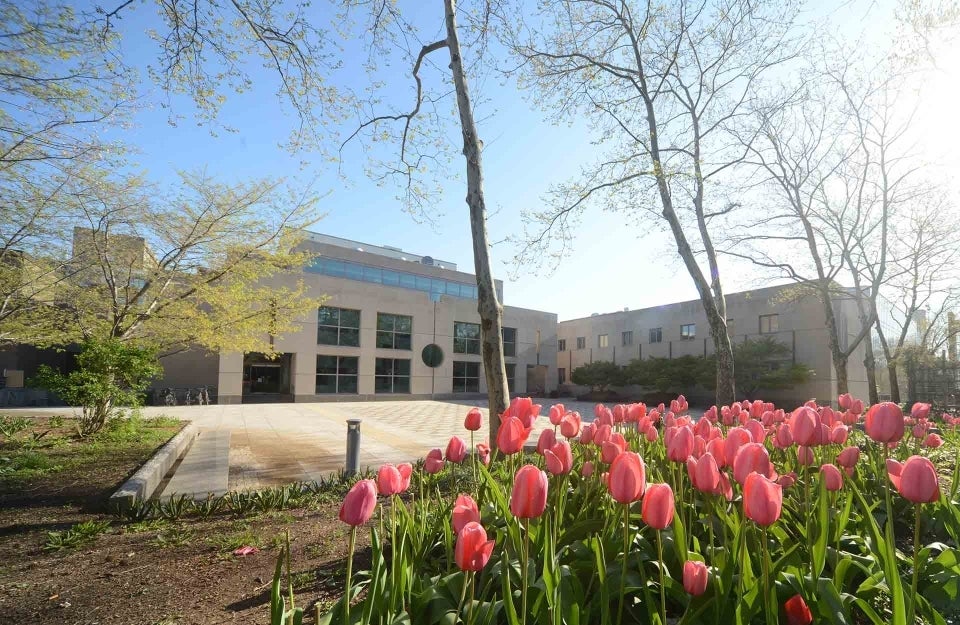
The Center for Advanced Research in Global Communication (CARGC) at the Annenberg School for Communication at the University of Pennsylvania is pleased to announce three visiting scholars will join the center this spring.
Gholam Khiabany will be a jointly appointed visiting scholar at CARGC and the Annenberg Center for Collaborative Communication for the entire spring 2025 semester. Anis Rahman and Anastasia Kavada will each be short-term visiting scholars at CARGC. During their residencies at the center, Khiabany, Rahman, and Kavada will develop their own research projects and take an active part in the life of the center by mentoring CARGC fellows and participating in center events and research activities.
“We’re thrilled to be able to host three visiting scholars this spring, all of whom are doing incredible and diverse research,” says CARGC Senior Research Manager Eszter Zimanyi. “Our fellows, along with the broader Annenberg community, will benefit greatly from the opportunity to converse with Dr. Khiabany, Dr. Rahman, and Dr. Kavada about their respective methodological approaches, regional expertise, and experiences in the field, and CARGC is honored to help facilitate these exchanges as a host center.”
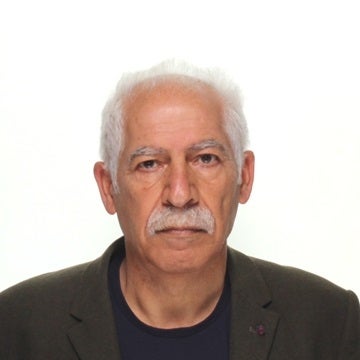
Gholam Khiabany
Gholam Khiabany is a Reader in Media and Communications at Goldsmiths, University of London. His research interests center on the media and social change and the relationship between communication and democracy with particular reference to the Middle East. Gholam is also interested in the debate over multiculturalism, the rise of the security state, and anti-Muslim racism.
He is the author of Iranian Media: The Paradox of Modernity (Routledge, 2009), co-author of Blogistan: The Internet and Politics in Iran, with Annabelle Sreberny (I.B.Tauris, 2010) and Media, Democracy and Social Change: Re-imagining Political Communications, with Aeron Davis, Natalie Fenton and Des Freedman (SAGE, 2020). He is co-editor of Liberalism in Neoliberal Times: Dimensions, Contradictions, Limits (Goldsmiths, 2017); After Charlie Hebdo: Terror, Racism and Free Speech (Zed, 2017) and The Handbook of Media and Culture in the Middle East (Wiley, 2023). Gholam is a member of the council of management of the Institute of Race Relations and the editorial board of Race & Class (Sage).
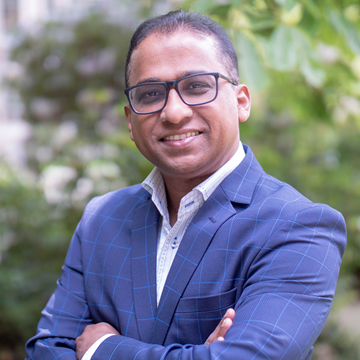
Anis Rahman
Anis Rahman is an assistant teaching professor in communication at the University of Washington (UW), Seattle, and an affiliate faculty member of the South Asia Center at UW’s Jackson School of International Studies. He holds a Ph.D. in communication from Simon Fraser University and an M.A. in television journalism from Goldsmiths, University of London, where he received the prestigious Chevening Award.
At UW, Anis teaches courses on global communication, the cultural impact of information technology, and introduction to communication, combining his academic expertise with practical knowledge from the Global South. Previously, he taught political economy of international communication, development communication, and research methods at Simon Fraser University in Vancouver, Canada.
Anis’s research focuses on the political economy of media, platform ownership, and their societal implications. His current projects examine digital authoritarianism and resistance, public internet and AI, and platform geopolitics in South Asia, investigating how global media portrays the contestation among the U.S., China, and India over digital platforms and outer space exploration.
With over 20 peer-reviewed articles and book chapters to his name, Anis’s work has appeared in leading journals such as Media, Culture & Society, Journalism & Mass Communication Quarterly, Journal of Applied Communication Research, The Review of Communication, and Asian Journal of Communication. He also co-chairs the public service media policies working group of the International Association for Media and Communication Research (IAMCR), where he advocates for global public media equity and policy innovation.

Anastasia Kavada
Anastasia Kavada is a Reader in Media and Politics at the University of Westminster, where she leads the MA in Media, Campaigning and Social Change. Her research focuses on the links between digital media, social movements, participatory democracy, and campaigning for social change. Anastasia’s work has explored processes of organizing and collective identity formation in movements such as the Global Justice Movement in Europe, the Occupy movement in the US and the UK, Nuit Debout in France, the Athens Indignants, and the environmental movement. She is particularly interested in the democratic logics enacted by these movements, such as radical transparency, horizontality, and the commons, and the ways in which digital media both enable and constrain these logics. Her more recent work investigates care ethics in terms of vulnerability and interdependence and how these inform the practices of contemporary movements or how they can help us re-imagine the public sphere concept.
Anastasia’s work has appeared in a variety of edited books and academic journals, including Media, Culture & Society, Communication Theory, Information, Communication & Society, and Javnost – The Public. She has edited special issues for academic journals such as Media, Culture & Society, Social Movement Studies, Policy & Internet, and Information, Communication & Society. Anastasia has served as Co-Director of the Communication and Media Research Institute and as Co-Leader of the Arts, Communication and Culture Research Community at the University of Westminster. She was also a member of the editorial boards of Media, Culture & Society and of Social Movement Studies.
About the CARGC Visiting Scholar Program
CARGC offers short-term and long-term visiting fellowship positions for a limited number of visiting scholars from institutions other than the University of Pennsylvania whose research aligns with current CARGC research themes. To learn more about the visiting scholar program at CARGC and read testimonials from our former visiting scholars, please visit this webpage.

